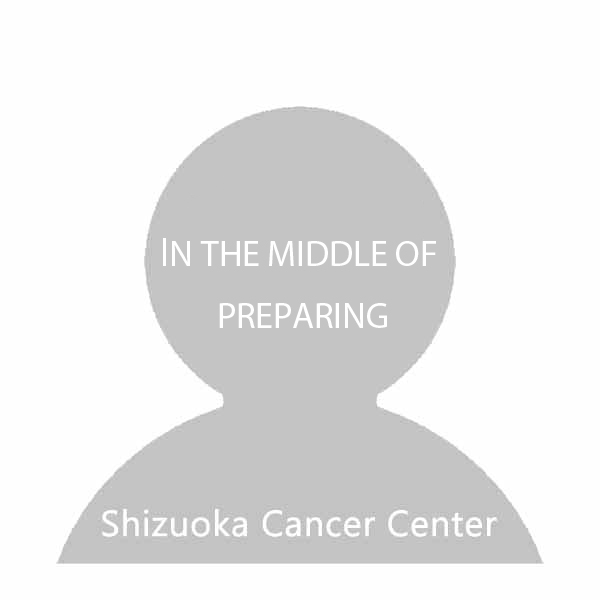 |
 |
 |
 |
|
| Deputy Director and Chief Yasuhiro Tsubosa, M.D., Ph.D. |
Deputy |
Senior Staff Kazunori Tokizawa, M.D. |
Senior Staff |
Esophagus is a tube-like organ functioning as a conveyer of food from mouth down to stomach. Cancer developed in the mucosa covering over the internal surface of the tube is called “esophageal cancer. “ Patients of the disease are found more in men than women, which is a fact proven with five-times-bigger rates of male patients for both morbidity and death than female ones. Treatments of the disease include surgery, chemotherapy (= anti-cancer drug therapy), endoscopic therapy and radiotherapy, and they are often combined depending on the stage of disease progression. Among them, the Division of Esophageal Surgery handles surgeries.
Operational methods can vary depending of the location and the progression of the cancer, because esophagus is an elongated organ spanning for about 25cm from the neck to the chest. At this division, experienced surgeons who are the experts of esophagus perform operations for complete resections of cancers.
We adopt less invasive surgical procedures than conventional ones including “thoracoscopic surgery,” which is to insert a camera and surgical tools through a tiny incision, and “robotic surgery,” a procedure on the surgical robot system.
There are various therapies for esophageal cancers, including endoscopic therapy, chemotherapy (anti-cancer drug therapy) and radiotherapy as well as surgery, and the choice always depends on the disease progression. At the SCC, the treatment is decided based on “the Esophageal Cancer Therapy Guidelines,” which is a cornerstone of the decision-making at the medical conference involving the Divisions of Esophageal Surgery, Gastrointestinal Oncology, Endoscopy and Radiation Oncology in order to customize the best treatment plan for each patient.
Esophageal surgeries are performed by a highly-qualified medical team involving medical staff and nurses who always reach consensus before each operation. Especially for prevention of postoperative complications, preoperative nutrition control, rehabilitation of respiratory organs and oral care are being promoted, all of which result in the downward trend of the complication rates for ruptured suture and postoperative pneumonia. At the SCC, the mortality rate after complete resections of esophageal cancers is as low as about 0.2%, which is one of the positive outcomes of this team medicine and is far lower than the national average of 2 or 3%. The nutrition management is especially focused on from the very beginning when the patient visits the SCC for the first time, through the whole course of the cancer treatment, to even after the hospital discharge.
Efforts are being made for development of new ways of diagnosis and treatment for esophageal cancer at this division, participating in a multicenter study with “the Japan Clinical Oncology Group (JCOG).” We are working hard to develop a new treatment method, to calculate treatment effects and to establish a choice method for an optimal therapy for each case of esophageal cancer.
It’s been said that esophageal cancer is difficult to be completely cured, but there have been more cases of complete cure than before due to early detections. We highly recommend visiting us soon when you are annoyed by such symptoms as feeling as if the food was stuck in the chest, smarting there, and heartburn. We always try to give a patient thorough explanation on the disease condition until getting him/her understand it well, and offer an optimal cancer treatment. We would like to put our minds together with the patients, so that we can fight well against the disease.
esophageal cancer
Specialist and Supervisory Doctor Certified by the Japan Surgical Society
Certified Doctor for Surgical Treatment for Gastroenterological Cancer, Specialist and Supervisory Doctor, the Japanese Society of Gastroenterological Surgery
Certified Doctor and Specialist for Esophageal Surgery, Councilor, Commissioner, the Japan Esophageal Society
The Japanese Society of Clinical Oncology
Interim Supervisory Doctor and General Clinical Oncologist Certified by the Japanese Board of Cancer Therapy
The Japanese Gastric Cancer Association
The Japanese Association for Thoracic Surgery
The Japanese Cancer Association
The Japan Broncho-Esophagological Society
The Japan Society for Endoscopic Surgery
The Japanese Surgical Association
The Japanese Society for Parenteral & Enteral Nutrition
Facilitator, the Society of Medical Conflict Management
The International Society for Diseases of the Esophagus
esophageal cancer
Specialist Certified by the Japan Surgical Society
Certified Doctor for Surgical Treatment for Gastroenterological Cancer, Specialist and
Supervisory Doctor Certified by the Japanese Society of Gastroenterological Surgery
Certified Doctor, Specialist for Esophageal Surgery, Councilor, the Japan Esophageal Society
Surgeon with Certified Expertise for Esophagus, the Japan Society for Endoscopic Surgery
The Japan Society of Clinical Oncology
The Japanese Gastric Cancer Association
The Japanese Association for Thoracic Surgery
The Japanese Society for Clinical Nutrition and Metabolism
The Japan Society for Surgical Infection
gastroenterological surgery (specializing in surgical treatment for esophageal cancer)
Specialist Certified by the Japan Surgical Society
Certified Doctor for Surgical Treatment for Gastroenterological Cancer, and Specialist, the Japanese Society of Gastroenterological Surgery
The Japan Esophageal Society
The Japanese Society for Endoscopic Surgery
Specialist Certified by the Japan Gastroenterological Endoscopy Society
The Japan Society for Surgical Infection
The Japanese Association for Thoracic Surgery
The Japanese Gastric Cancer Association
The Japan Surgical Association
The Japanese Society of Clinical Oncology
gastroenterological surgery (specializing in surgical treatment for esophageal cancer)
Specialist Certified by the Japan Surgical Society
Certified Doctor for Surgical Treatment for Gastroenterological Cancer, and Specialist, the Japanese Society of Gastroenterological Surgery
Certified Doctor, the Japan Esophageal Society
Surgeon with Certified Expertise, the Japanese Society for Endoscopic Surgery
The Japan Gastroenterological Endoscopy Society
The Japanese Gastric Cancer Association
The Japanese Society of Gastroenterology
The Japanese Cancer Association
The Japanese Society of Clinical Oncology
The Japanese Association for Thoracic Surgery
The American Association for Cancer Research